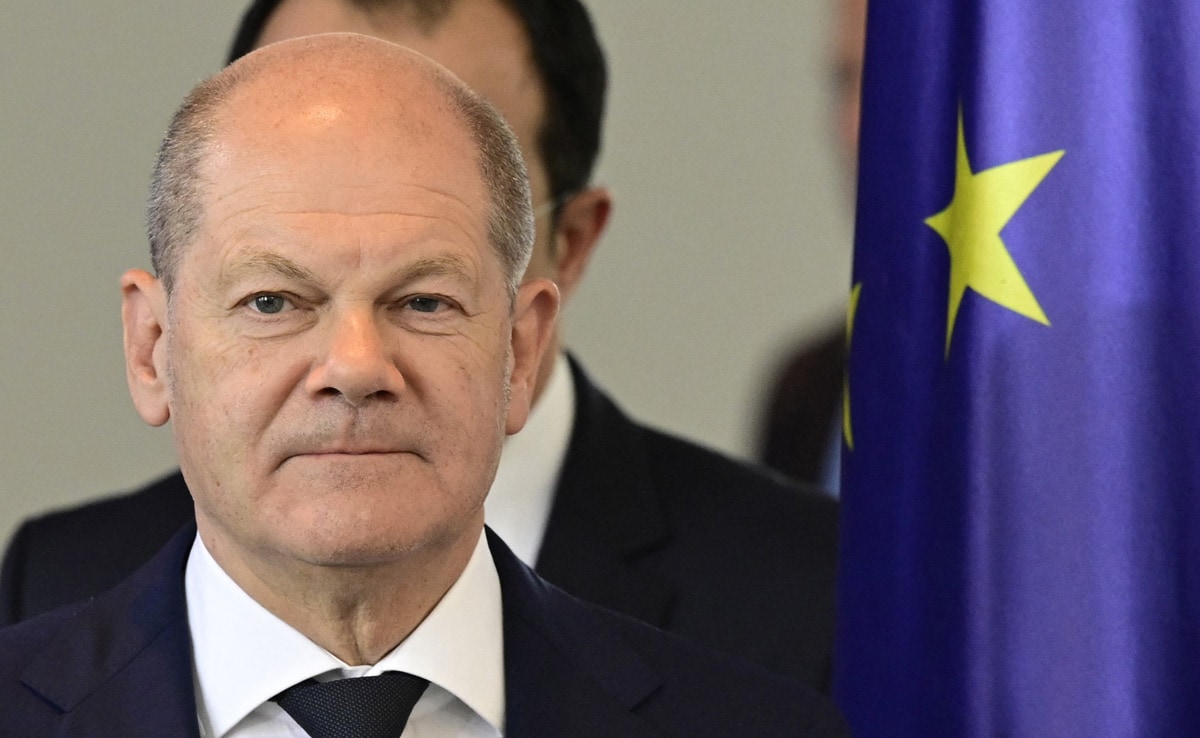Putin “Weakened” By Wagner Mutiny: German Chancellor Olaf Scholz

Olaf Scholz said Germany and its Western partners would be keeping a close eye on further developments.
Berlin:
German Chancellor Olaf Scholz said Wednesday Russian President Vladimir Putin had been “weakened” by the Wagner mercenary group’s mutiny, but that the ultimate consequences of the rebellion remained unclear.
The weekend uprising — which ended when Wagner leader Yevgeny Prigozhin called off his troops’ advance on Moscow — has prompted questions about Putin’s grip on power as Moscow’s war in Ukraine grinds on.
In his first extensive comments about the aborted rebellion, Scholz said it would “surely have long-term consequences in Russia”.
“I do believe that he (Putin) is weakened,” Scholz told public broadcaster ARD.
“It shows that the autocratic structures, the power structures, have cracks and he in no way sits as firmly in the saddle as he always claims,” the German leader said.
“But I don’t want to take part in speculation about how long he’ll stay in office — it could be a long time or short, we don’t know.”
Scholz said Germany and its Western partners would be keeping a close eye on further developments.
“Russia is a nuclear power, it is a very powerful country and that is why we have to watch very carefully when dangerous situations arise,” he said.
– ‘Goal not regime change’ –
Scholz reaffirmed Berlin’s support for Ukraine and underlined that there could be no peace negotiations until Moscow withdrew its troops.
“Anything else would legitimise what’s happened,” he said. “And that is why it can’t end up that the war is just frozen there where the line is between the various armies.”
He said it was unclear whether the Wagner mutiny “would make it easier or harder” to end the war.
“That is why it is important for Ukraine to do its part to make it (a resolution) possible — that is what it is trying to do with the current offensive.”
Scholz said Western allies were “supporting Ukraine so it can defend itself” but stressed that “the goal of our support for Ukraine is not regime change in Russia”.
Previously seen as reticent on supplying weapons, Germany has become the second-biggest contributor of military assistance to Ukraine after the United States.
Asked later about the potential risks posed by Wagner troops in Belarus, Scholz said NATO would be monitoring developments closely.
“Private armies are always threatening, even for the countries that maintain them — Russia has now seen that,” he told reporters.
Calling it a “situation that we are watching with great concern”, Scholz said nevertheless that NATO was prepared to “defend every centimetre of its territory”.
“At the same time, I am not currently expecting a change in the situation,” he said.
Following the rebellion, Putin ordered Wagner to lose its heavy weaponry, and its fighters to either join the regular armed forces or accept exile in Belarus.
(Except for the headline, this story has not been edited by NDTV staff and is published from a syndicated feed.)
For all the latest world News Click Here
